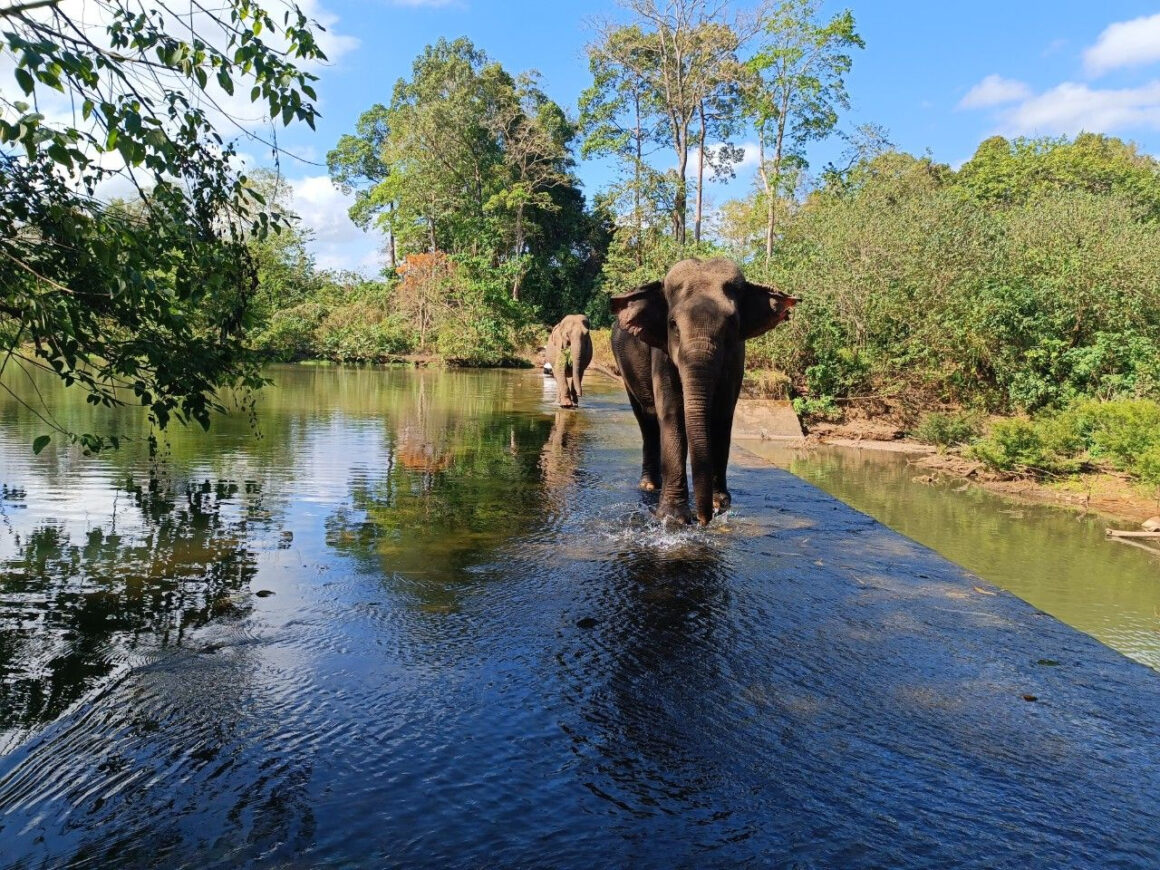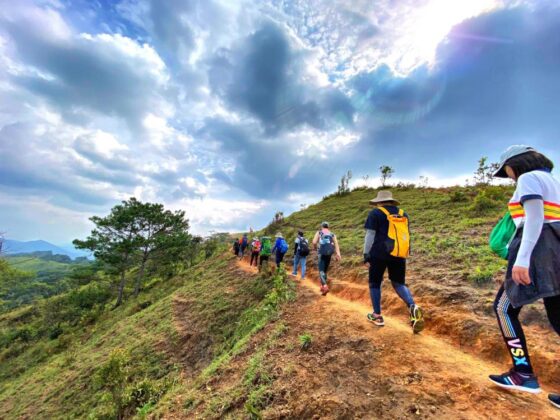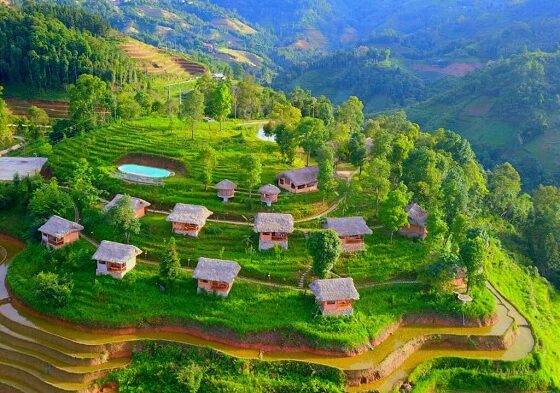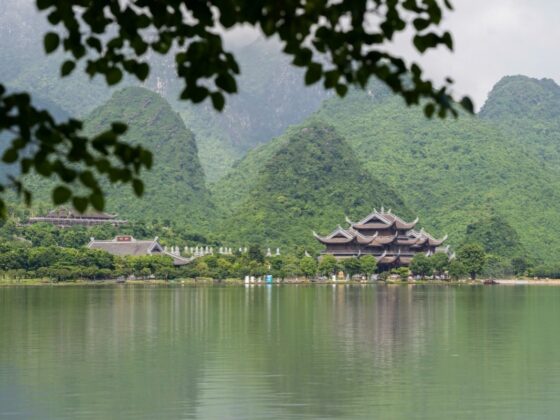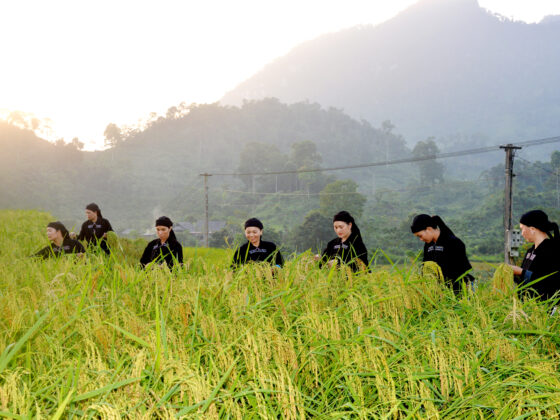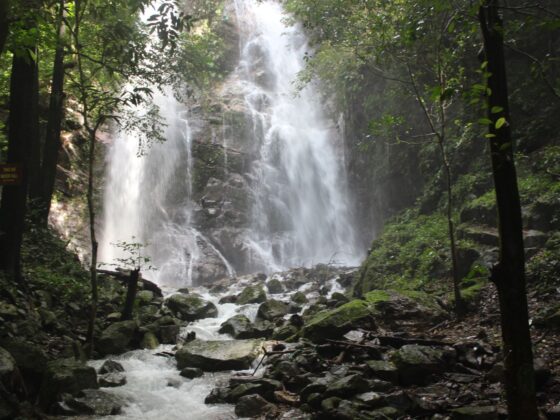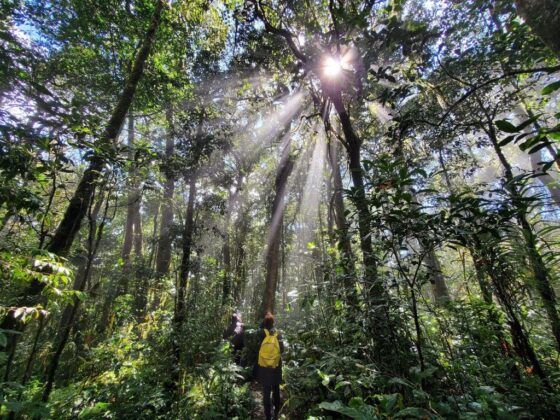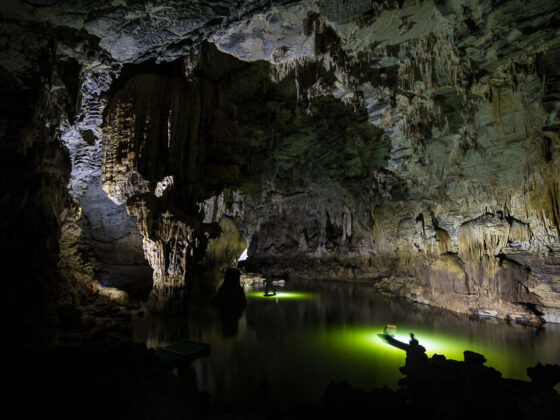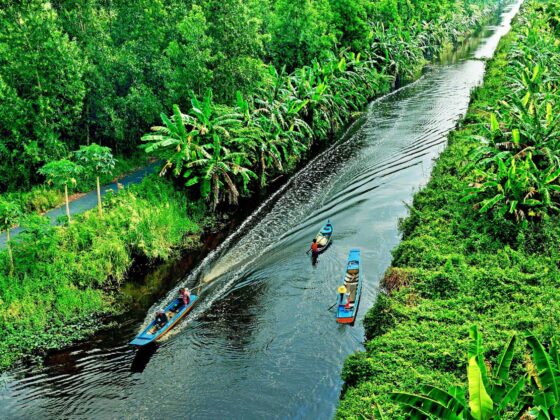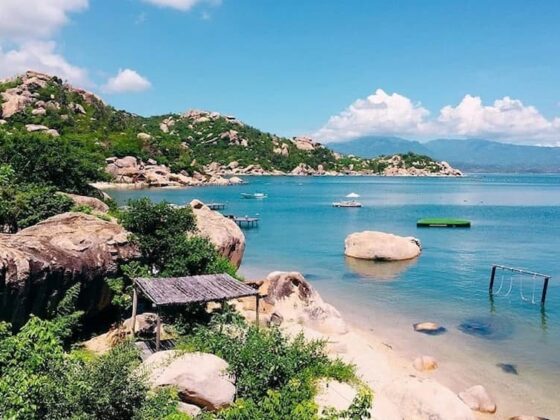Table of Contents Show
In the heart of Đắk Lắk Province, ethical elephant tourism Vietnam is rewriting the story of human–elephant relationships. Gone are the days of elephant rides and performances. Instead, travelers can now trek alongside conservationists in Yok Đôn National Park, where adventure meets responsibility.
This journey takes you deep into a rare dry forest ecosystem, offering a chance to witness not only the footprints of wild elephants but also the tireless efforts to protect them, and the culture they’ve shaped for generations, exemplifying the best of ethical elephant tourism Vietnam.
Read more interesting posts here:
- From Playgrounds to Pine Forests: Your Guide to Finding Kid-Friendly Hiking Trails
- Making Memories: 5 Must-Try Things to Do in Ba Be Lake with Kids!
- More Than a Walk: The Surprising Benefits of Walking with Friends
Yok Đôn National Park – Following the footprints of giants for ethical elephant tourism Vietnam
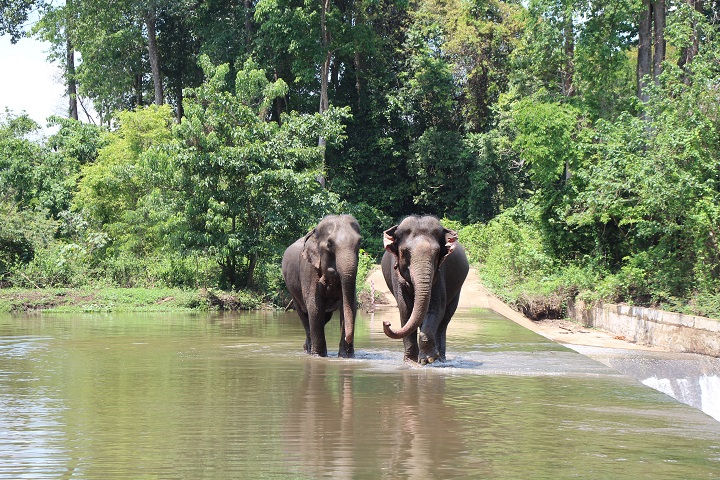
Some treks take you into mountains, others into jungles. In Yok Đôn National Park, in Đắk Lắk Province, the path takes you into a forest that looks unlike anywhere else in Vietnam — tall, dry dipterocarp trees rising from sandy soil, their leaves rattling like paper in the wind. This is elephant country, and to trek here with conservationists is to follow not only the footprints of giants but also the stories of how people are fighting to protect them, a true highlight of ethical elephant tourism Vietnam.
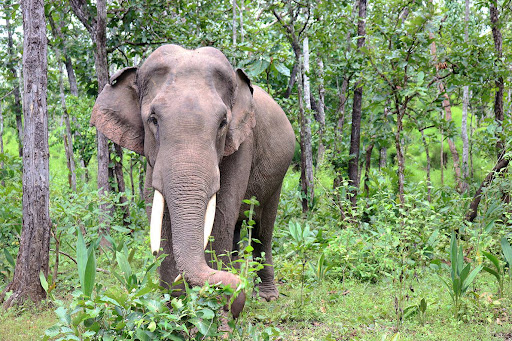
The journey begins near Buôn Đôn, a district long known for its elephant-keeping traditions. For generations, the Ê Đê and M’nông people lived alongside elephants, training them for transport, ceremonies, and even legend. These elephants were once captured from the wild, drawn from herds that roamed freely across the Central Highlands. Today, that era has passed.
Wild elephants are critically endangered in Vietnam, with estimates suggesting that fewer than 100 remain in the wild, scattered across fragmented forests, including Yok Đôn. Domesticated elephants number around 80–90, most in Đắk Lắk, where they were historically central to village life. This shift is crucial for ethical elephant tourism Vietnam.
The trekking experience: Heat, beauty, and the signs of elephants
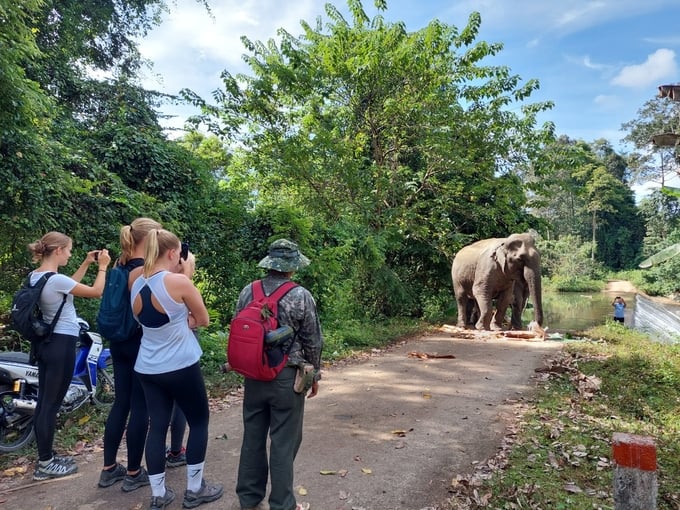
Physically, trekking in Yok Đôn is a different challenge than Vietnam’s humid jungles. The forest here is open and sunlit, with sparse shade and sandy ground that crunches underfoot. By midday the heat presses hard, and water becomes as important as endurance. Yet the landscape holds its own stark beauty: golden grasslands rolling between tree groves, wide rivers winding through rocky banks, and a horizon that seems to stretch forever, making it a unique experience for ethical elephant tourism Vietnam.
As we walked, the rangers pointed out signs invisible to untrained eyes. A broken branch here, a patch of disturbed soil there, all clues to the quiet passage of elephants. Though wild herds are elusive, knowing they are still present makes every sound sharper, every step more alive. We paused at a waterhole where fresh tracks sunk deep into the mud, larger than dinner plates. To stand inside the impression of an elephant’s foot is to feel both awe and humility, a powerful moment in ethical elephant tourism Vietnam.
Conservation in action: Building a future for elephants through ethical elephant tourism Vietnam
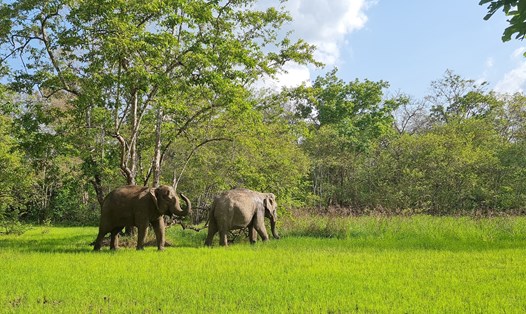
The government and conservation organizations are now taking steps to ensure those tracks do not vanish forever. In Đắk Lắk, an Elephant Conservation Center was established to provide veterinary care, breeding support, and sanctuaries for rescued elephants. The province has banned capturing elephants from the wild and is shifting tourism away from elephant rides toward more ethical observation and walking experiences. Ranger patrols in Yok Đôn are part of this effort, protecting habitat from illegal logging and poaching. Slowly, the focus is turning from using elephants to coexisting with them, which is the cornerstone of ethical elephant tourism Vietnam.
Beyond elephants: Biodiversity and culture of Đắk Lắk
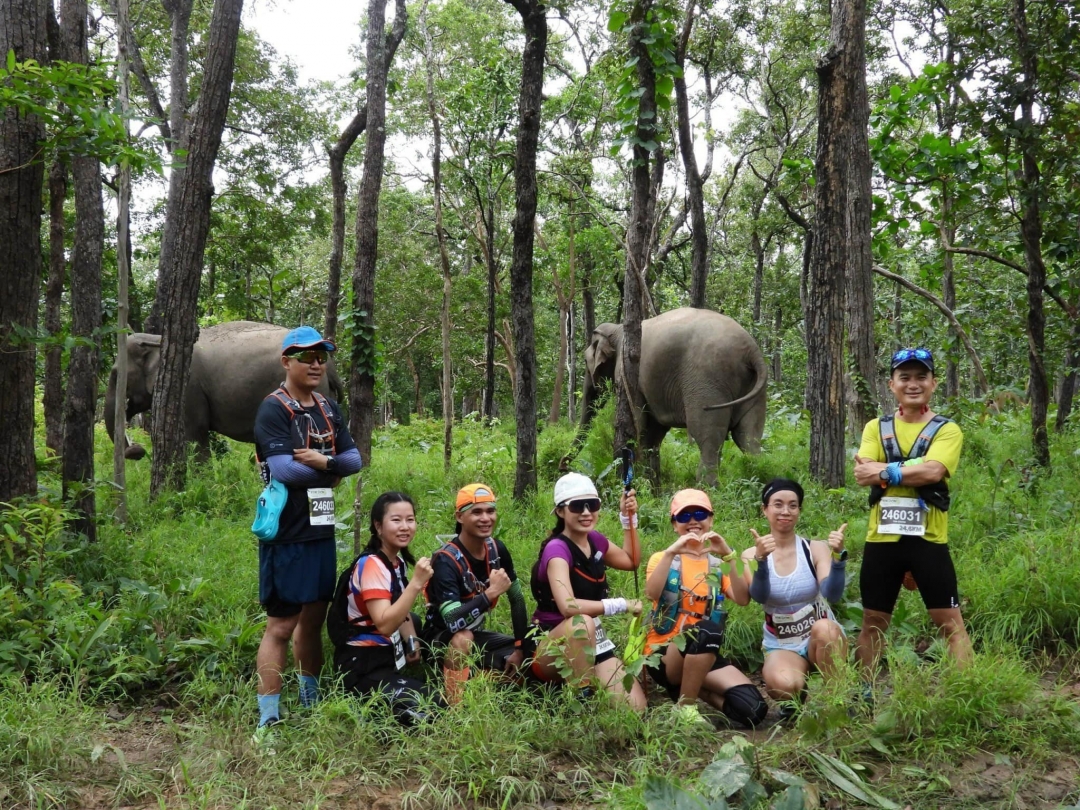
Yok Đôn is not just about elephants. It is one of Vietnam’s richest biodiversity corridors, home to deer, civets, monkeys, and more than 300 species of birds. Hornbills wheel overhead, their wingbeats heavy and slow, while woodpeckers hammer out rhythms on ancient trunks. The rangers knew them all, naming species and explaining behaviors with the ease of long familiarity. For them, the forest is a library, each track, call, and feather a page in an endless book, showcasing the broader impact of ethical elephant tourism Vietnam.
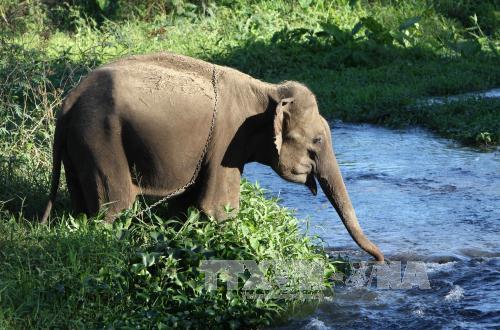
Evenings in the park brought their own rhythm. We camped in a clearing where the rangers cooked rice and grilled meat over an open fire. As sparks rose into the sky, they shared stories of their work: nights spent tracking illegal loggers, mornings teaching schoolchildren about conservation, afternoons checking camera traps that record the hidden life of the forest. Their pride was evident, but so was the weight of responsibility. Protecting elephants here is not just about wildlife, it is about preserving a culture, an ecosystem, a future, aligning perfectly with the goals of ethical elephant tourism Vietnam.
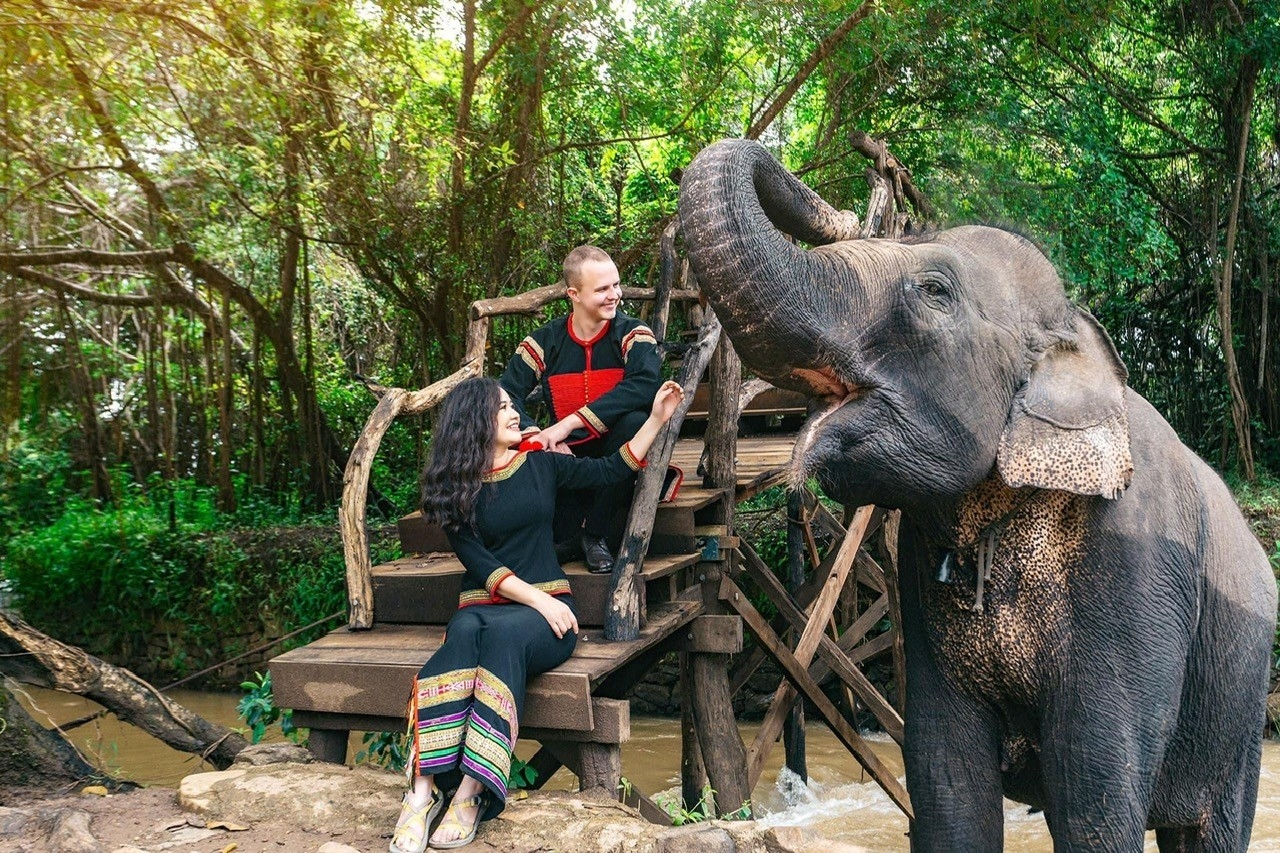
Culturally, elephants remain central to the identity of Đắk Lắk. The Ê Đê tell stories of elephants as kin and guardians, symbols of strength and wisdom. While the era of elephant riding has faded, festivals and rituals still honor the animals, reflecting a deep respect that conservation efforts now build upon. Trekking with rangers allows travelers to step into this dialogue, not as spectators, but as participants who witness the connection between land, animal, and people, a unique aspect of ethical elephant tourism Vietnam.
A journey of conservation and connection: The essence of ethical elephant tourism Vietnam
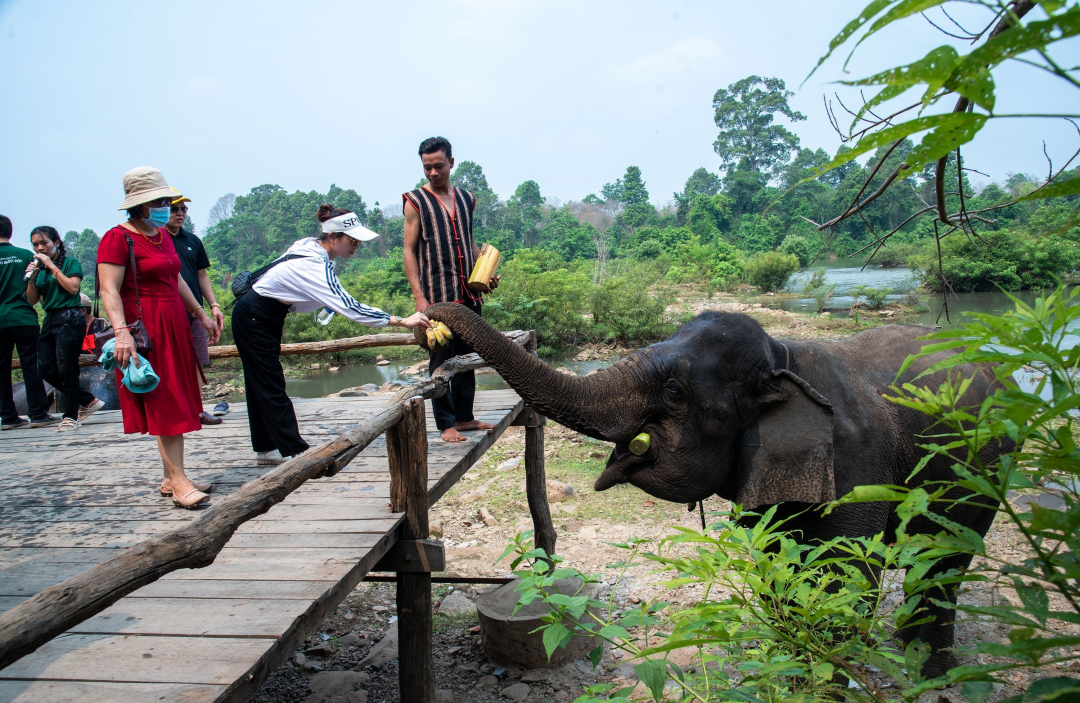
When I left Yok Đôn, my clothes dusty and my water bottle empty, I carried more than fatigue. I carried the memory of following the elephant’s path, guided by people who dedicate their lives to ensuring those tracks do not disappear. Trekking here is not only about seeing nature, it is about learning what it takes to keep nature alive. And in that lesson lies the deeper adventure: the discovery that conservation, like trekking, is a path walked one step at a time, together, embodying the spirit of ethical elephant tourism Vietnam.
Conclusion
Ethical elephant tourism Vietnam is more than a travel trend, it’s a movement toward harmony between people, wildlife, and culture. By choosing experiences like trekking in Yok Đôn National Park, travelers actively support conservation while gaining unforgettable memories. Here, you don’t just see elephants, you help ensure that future generations will, too. Yok Đôn offers a profound lesson: conservation, like trekking, is a journey made one step at a time, together, proving the profound impact of ethical elephant tourism Vietnam.
Ready to plan your own slow travel adventure? Join our community of explorers in the ExoTrails Facebook Group and follow the ExoTrails Fanpage for daily inspiration and trail tips!
FAQs
Where can I see elephants ethically in Vietnam?
The best place to experience ethical elephant tourism in Vietnam is Yok Đôn National Park in Đắk Lắk Province, where you can trek alongside conservationists and observe elephants in a responsible manner.
Is Yok Đôn National Park worth visiting?
Yes, Yok Đôn National Park is highly worth visiting for its unique dry forest ecosystem, rich biodiversity, and opportunities to engage in ethical elephant tourism Vietnam and learn about conservation efforts.
Are there still wild elephants in Vietnam?
Yes, there are still wild elephants in Vietnam, though their numbers are critically low (fewer than 100), with small populations found in fragmented forests like Yok Đôn National Park, highlighting the need for ethical elephant tourism in Vietnam.
What is being done to protect elephants in Vietnam?
Efforts to protect elephants in Vietnam include establishing conservation centers, banning wild capture, shifting tourism from rides to ethical observation, and ranger patrols against logging and poaching, crucial steps for ethical elephant tourism in Vietnam.
What is the best way to experience the Central Highlands?
The best way to experience the Central Highlands is through immersive cultural activities, exploring natural parks like Yok Đôn to engage in Vietnam, and connecting with local communities to understand their traditions.

